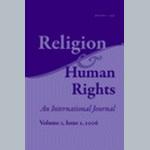Contesting women's rights in Sudan
Islamist policies targeting women have had far-reaching consequences. But women are not passive victims. Rather, women are mobilizing for and against the state. Gender has become perhaps one of the most contested arenas in Sudanese politics.
In her doctoral thesis The Many Faces of Political Islam in Sudan: Muslim Women’s Activism for and against the State, Liv Tønnessen identifies three different groups promoting competing gender ideologies for and against the state.
-They hold strongly diverting views on women’s rights. Neither of them see their emancipation struggle as opposing or resisting Islam. On the contrary, they locate their struggle within various interpretations of Islam, says Tønnessen.
Victorian notions of motherhood
The Islamists advocate gender equity, not gender equality, claiming that women and men are biologically different and should therefore not have equal rights. They reject ratification of CEDAW, deeming the convention to be of no relevance to Sudanese society. They call for Islamic, not Western, solutions for Muslim women. According to Islamists, women can participate in war and in the armed forces; they can be ambassadors, doctors and professors, members of parliament and presidential advisors . But when it comes to women’s rights within the family, they preach conservative values underpinned by male guardianship.
-Paradoxically, a woman can become president in Sudan, but only if her husband allows it, says Tønnessen.
She underlines the fact that conservative family values are not unique to Islamists in Sudan.
-Their family values have a lot in common with the ideals of womanhood during the Victorian era, where femininity was centered around family, motherhood and respectability.
Feminist readings of the Quran
Islam has a reputation of being anti-woman among scholars, policy makers, journalists as well as in the public opinion of Europe and the United States, according to Tønnessen. Yet, she has met Islamic feminists in Sudan who find support for gender equality in the Quran. The majority of Sudanese feminists do not strive for Western and secular feminism. In their opinion, the answer is a distinctive Islamist feminist ideology which relies on Sharia as well as international human rights. Their activism focuses particularly on women’s inequality within the family.
- According to the Islamic feminists, Muslim women are oppressed because of patriarchal interpretations of Islam rather than Islam itself, says Tønnessen.
-More conservative than the state could ever imagine
The Sudanese Salafists advocate gender segregation based on a Saudi Arabian model. Their ideal is a “protected” Muslim woman in the private as well as the public spaces. They oppose any ratification of CEDAW, and argue for further restrictions in family law.
-The Salafists argue for more patriarchy and thereby reinforcing male guardianship. The Sudanese state allows women to divorce their husbands on certain conditions, like impotence or cruelty. The Salafists believe that women’s right to divorce should be revoked, says Tønnessen.
The Salafists’ opposition to the state’s gender policies clearly does not take the direction Western policy makers and feminists wish for. This is a reminder not to demonize the Sudanese state while romanticizing the opposition, according to Tønnessen.
- Parts of the opposition are more conservative and discriminatory towards women than the Islamist state ever imagined, she says.
Trial lecture: 1 December, 15:15. Auditoriet, U. Pihls Hus, Professor Keysers gate 1
How to account for the centrality of contests relating to women's rights in projects of Islamization?
Defense: 2 December, 10:15. Auditoriet, U. Pihls Hus, Professor Keysers gate 1
Publications

Beyond numbers? Women's 25% parliamentary quota in post-conflict Sudan
